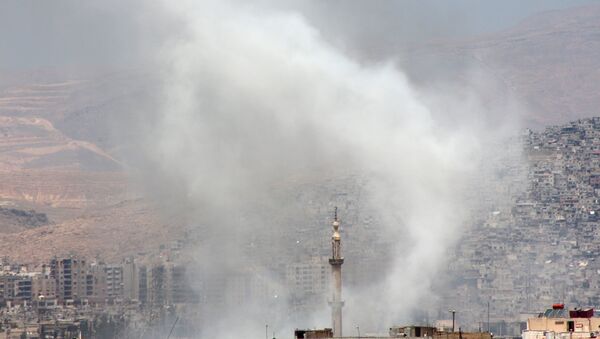"The sarin used then [2013] was by rebel groups and likely involved the support of outside intelligence organizations… It is old information," Johnson pointed out. "This latest news burst appears to be part of a continuing propaganda operation to try to isolate Syria and bolster support for the rebels."
Pulitzer-prize winning journalist Seymour Hersh documented external involvement in the Syrian chemical attack in an article published in the London Review of Books back in December 2013, Johnson explained, adding that Hersh’s account was "absolutely correct."
Syria’s chemical weapons capability, Johnson continued, was carefully monitored by both US and Israeli intelligence on a daily basis.
"In other words, the use of chemical weapons by Syria would first require advance preparation by a Syrian military chemical unit," Johnson argued. "US and Israeli intelligence would have detected such activity. They did not find anything of the sort."
On Tuesday, Jaafari claimed that the sarin gas attack that killed hundreds of people in the Syrian town of Ghouta in August 2013 was a plot organized by French intelligence services to prevent UN weapons inspectors from going to Aleppo to probe into another chemical attack and put the blame for it on the Syrian army.
Russian Foreign Ministry spokeswoman Maria Zakharova said in a briefing on Thursday that Moscow welcomes the release of the report, which confirms that the Islamic State militants have chemical weapons. She reminded that Moscow had warned about the Islamic State being in possession of chemical weapons numerous times.




